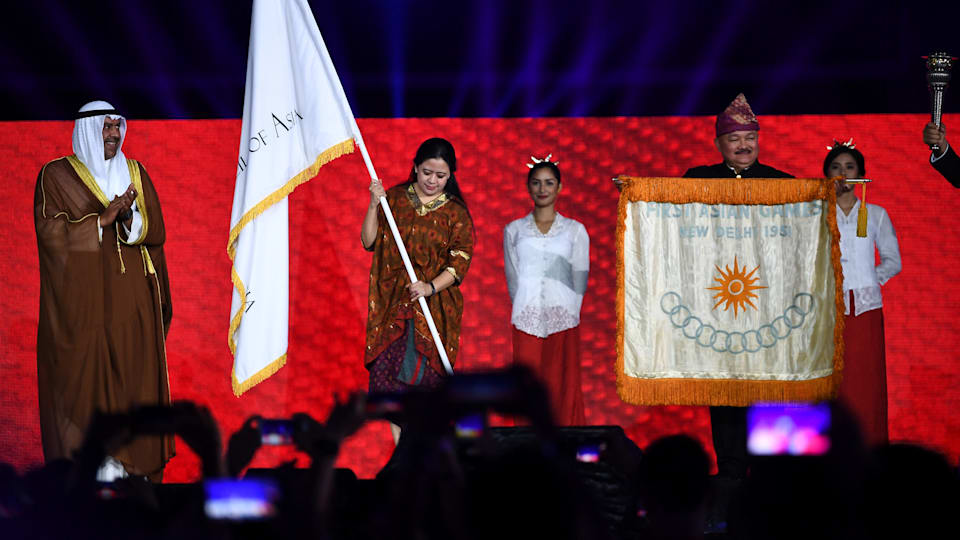First Asian Games: India’s role and a historic turn of events for continental sports bragging rights
The inaugural edition of the Asian Games, also known as the First Asian Games, was hosted in New Delhi in 1951.

The second-largest multi-sport event in the world after the Olympics, the Asian Games have been a quadrennial fixture in the sporting calendar since it was first held in India’s capital New Delhi in 1951.
Though the 1951 edition, officially known as the First Asian Games, is considered as the first official Asian Games, the Far Eastern Championship Games, or the Oriental Olympics, held from 1913 to 1934, are seen as the predecessor to the Asian Games.
First scrapped owing to political tensions between Japan and China and then due to the second World War, there was an attempt at reviving the Far Eastern Championship Games on the sidelines of the 1948 London Olympics when China and the Philippines met for a discussion.
As fate would have it, Guru Dutt Sondhi, the Indian International Olympic Committee (IOC) representative at London 1948, proposed a more inclusive competition, involving more nations than just countries from the Far East.
The idea had also been earlier discussed at the Asian Relations Conference, an assembly of representatives from almost all Asian nations, hosted in New Delhi in 1947, shortly before India’s independence.
Jawaharlal Nehru, who later became the first Prime Minister of India, led the summit while prominent Indian poet and political activist Sarojini Naidu chaired the meeting.
As colonialism started losing its stranglehold in the aftermath of the Second World War, more and more Asian countries were emerging as sovereign nations during the period. Consequently, the proposal of a continental sporting event where the nations could showcase their sporting prowess and carve out an identity for themselves didn’t take long to gain momentum.
India took a leading role in the movement and became the first hosts of the Asian Games.
The inaugural edition was planned in 1950 but was postponed by a year due to delays in preparation.
Interestingly, the Asian Games 2022 in Hangzhou, China, now postponed till 2023 due to COVID-19, is only the second time that the continental event has been postponed.
First Asian Games sports and participation
The First Asian Games saw 489 athletes from 11 nations, Afghanistan, Burma (present-day Myanmar), Ceylon (present-day Sri Lanka), Indonesia, Iran, Japan, Nepal, the Philippines, Singapore, Thailand and India, compete in 57 medal events across six different sports - athletics, aquatics (diving, swimming and water polo), basketball, cycling, football and weightlifting.
Boxing was also a popular choice to be included in the programme but was eventually dropped.
The official logo of New Delhi 1951 was a bright red sun with 16 rays underlined by 11 rings, representing the participating nations. The National Stadium in New Delhi was the official venue for the event. Dr Rajendra Prasad, India's first President, and Nehru were present at the opening ceremony.
Japanese athletes, competing for the first time since the horrors of World War II, dominated with 60 medals - 24 gold, 21 silver and 15 bronze. India finished second with 51 – 15 gold, 16 silver and 20 bronze.
Singaporean swimmer Neo Chwee Kok became the first-ever Asian Games gold medallist and was also the most successful individual athlete at New Delhi 1951 with four top podium finishes.
Sachin Nag won the 100m freestyle swimming event to record India’s first gold medal at the Asian Games.
The Mr Asia of 1951, a men’s physique competition, was also held as a non-medal event during the First Asian Games.
India’s Parimal Roy beat Iran’s Mahmoud Namdjou, the then bantamweight weightlifting gold medallist, for the bodybuilding (Mr Asia) title.
The Mr Asia competition saw a bit of controversy too. Namdjou, who was a finalist in his height class in the Mr Universe competition at the 1948 London Olympics, was upset after his loss to Roy.
“It is not fair competition when a Mr Universe finalist cannot be Mr Asia,” the Iranian said.
Namdjou would go on to become a two-time Olympic medallist, winning a silver at Helsinki 1952 and a bronze at Melbourne 1956, and a three-time weightlifting world champion.
